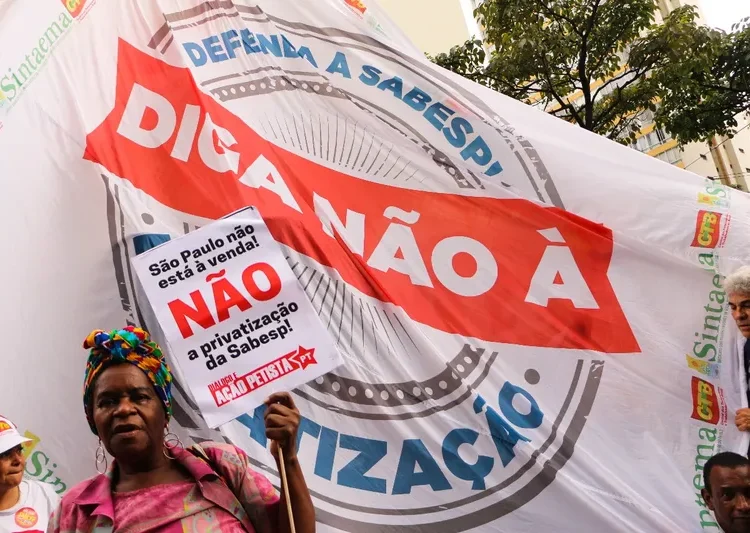São Paulo City Council approved the privatization of the São Paulo State Basic Sanitation Company (also known as Sabesp) on Thursday (2) by 37 to 17. The vote marked another step towards the sale of the São Paulo state-owned company, a process planned by Governor Tarcísio de Freitas (Republicans Party) and to be concluded in July.
The process has been taking place despite the population’s disapproval and the arguments of experts on water and sewage services.
According to a poll carried out a year ago by Datafolha Institute, 53% of São Paulo residents are against Sabesp's privatization and only 40% are in favor. In a non-binding referendum conducted by popular movements in November, 97% of participants voted against privatization.
This opposition was also made clear in parliamentary sessions on the sale of the company. In December, when the São Paulo Legislative Assembly (Alesp, in Portuguese) approved Tarcísio's privatization project, those who attended the session made a point of showing their discontent and were repressed by the Military Police with tear gas and batons.
On Thursday (2), people preparing to demonstrate in São Paulo's City Hall were blocked. Around 300 people were kept out of the building on the grounds of ensuring security.
The financial return for whoever buys Sabesp, however, is guaranteed. The company – which offers São Paulo the best sanitation in the country, according to the Brazilian Institute of Geography and Statistics (IBGE, in Portuguese) – made a profit of BRL1.18 billion (about US$ 232 mi) in the last quarter of 2023, 84.7% more than in the same period in 2022. In 2023, the state-owned company's net profit was BRL3.523 billion (over US$ 694 mi), an increase of 12.9% compared to the previous year.
The governor claims that privatization is necessary to universalize the water and sewage system in São Paulo state, but ignores experts who point out that the state-owned company already has the necessary capacity to expand its services to meet the national goal of expanding basic sanitation.
Sociologist Edson Aparecido da Silva, the executive secretary of the National Observatory for the Rights to Water and Sanitation (Ondas, in Portuguese), said in an interview with Brasil de Fato in February this year that there are no solid arguments for selling the company.
“Sabesp is a company that maintains investments that will make it possible to universalize the sanitation service before 2033, which is the deadline set by national law. Furthermore, it is a company that makes significant profits in consecutive years,” he said.
Another of Tarcísio's claims is that selling Sabesp will make water bills cheaper. However, national experiences with privatization show that tariffs have increased. Studies on which the privatization of the São Paulo state-owned company is based foresee the possibility of a reduction, but only if there is an injection of public money via subsidies.
In other countries, the privatization of water and sanitation services is also being reviewed. A survey carried out by the Dutch organization Transnational Institute mapped 1,658 cases of “de-privatization” of services around the world since 2000. Water companies returning to state-owned models are more common than privatization and account for 23% of the total.




